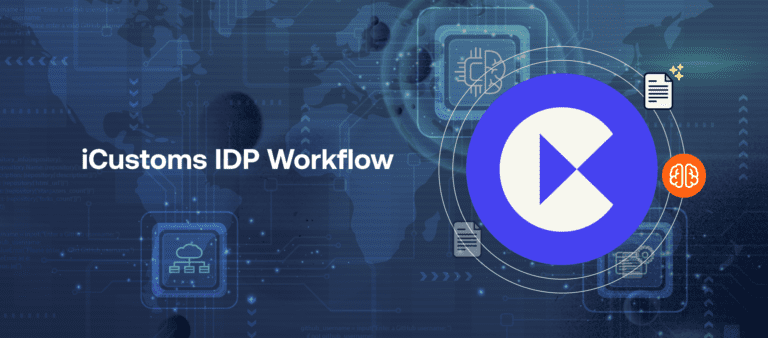Fast & Accurate ENS GB & EU ICS2 Solutions Built for You.
How to Choose the Best Import Export Management Software for Your Business
-
Freya Jane
- Director of Customer's Success
The international trading world is undergoing digital revolutions, and the involvement of import/export management software is increasing day by day. This software increases efficiency, streamlines processes, and enables businesses to make data-driven decisions.
A recent study by Verified Market Reports estimated that
“The Business Management Software (import/export management software) industry would only be worth USD 0.100 billion in 2023. But that’s only the start. According to the same estimate, the industry would increase at an astounding rate and reach a stunning USD 266 billion by the end of 2030. This represents a 15% Compound Annual Growth Rate (CAGR) and a surprising move in the direction of software-driven business management.”
This study highlights the importance of import/export management software for the trading industry. The right import-export management software for your business can greatly impact your logistics career. Whether you are an importer, exporter, customs broker, freight broker, retailer, or manufacturer, a software solution will be required to manage customs documents, shipments, duties and taxes, and compliance. Choosing the software that best aligns with your business needs may be challenging. However, keep your worries aside; we are here to equip you with the best tips to help you choose the best one.
5 factors to consider when choosing import export management software

The following factors will help you choose the best import and export software for your business:
Assess your business requirements
Each trade management software product has a distinct set of features tailored to address specific issues. Consequently, put your company’s objectives in writing so that you can select the software that best suits your needs. Before you begin looking for import export management software, you should have a clear understanding of what your company requires.
Consider the following inquiries:
- Determine your goals, objectives, and expectations
- Does your business carry out imports, exports or both
- List down the challenges you face in trading and customs declarations operations
- What functions and features do you need the most
- Define your security and scalability requirements
These questions will help you prioritise your criteria and narrow down your questions.
Ease of use and change management
Incorporating a new software solution in the business setup should not complicate the existing things for everyone involved in the organisation. Out-dated softwares often requires more manual work and training, which renders it difficult to integrate into the current system. However, modern AI-powered customs declaration and management software, like one provided by iCustoms, have such built-in features that make migrating easier and smoother.
While choosing the new import-export management software, consider the following questions to determine its ease of use:
- Is the new import management software easy to learn and intuitive?
- How long will it take for your employees to understand, learn, and use new software?
To make the right decisions, we highly recommend booking a demo with us and getting a guided tour of our software. Moreover, you’ll also get the opportunity to talk to our experts and ask about the above questions and any other queries you may have.
Features
Keep the following features in mind while choosing the trade management solution:
Landed cost calculation and tracking
This feature helps you calculate customs duties, taxes, and other relevant costs with exceptional accuracy, saving you from any unexpected fines and penalties. Thus, it is an essential feature to consider in your import and export ERP software.
iCustoms, a leading customs declarations software, offers a specialised feature, “iCalculator,” particularly dedicated to calculating taxes and duties.
Compliance management
Failing to comply with the import and export regulations defined by HMRC may lead to delays, fines, and even freight holding. Hence, choose software that automates customs processes to stay in compliance with the updated customs rules and regulations.
Customs Declaration Software by iCustoms guarantees adherence to international trade’s continuously evolving regulatory requirements, making trading a breeze for importers and exporters.
Real-time visibility
Tracking the movement of your products from origin to destination allows for improved communication with clients and proactive problem-solving.
iCustoms provides real-time visibility that transforms and revolutionises the management and optimisation of the supply chain by providing people with the status of their shipments.
Flexibility and scalability
The majority of trading firms need a variety of tools to manage various business divisions. Traders frequently collaborate with supply chain associates, clients, and partners to exchange crucial data and information. In order to assist you in automating processes, eliminating repetitive tasks, and developing your business without increasing your manual workload, it is crucial that your software be simple to link with your other tools.
You ought to think about the following:
- Are there built-in integrations between the software and the tools you use?
- Does the software offer a properly documented application programming interface (API) that can be integrated with any system, including old back-end systems, TMS, and ERP systems?
Read out to unlock the top 7 best Trade Management Software. Click here!
Pricing
You should be well-versed in the benefits that software can offer your company before assessing its price. Price shouldn’t be the primary factor to consider; prioritise other factors, such as it should increase revenue and/or save money for your company by increasing sales and revenue or by saving you time and reducing operating expenses.
Consider the following questions:
- Does the software provider offer a free demo?
Is the pricing customisable? - Is the software transactional-based, or does it require a subscription?
iCustoms provides exceptional transparency when it comes to pricing. You can also get a free demo to test our services and customise the price according to your needs.
Takeaways
Traders may find it challenging to choose the right import-export management software due to the many solutions available on the market. It is always best to do research, assess your business needs, and check the features, scalability, flexibility, and pricing before making the final decision.
Select the one that meets all of these specifications, like iCustoms; it is one of its kind, providing users with the utmost precision, unparalleled performance, and trustworthy outcomes. To test it out, book a demo right now!
FAQs
What is import export software?
Import export software is designed to automate trading procedures and calculate taxes and duties, saving you time and resources.
Should I start an import export business?
Starting an import export business can be very profitable yet full of challenges. However, if you begin with proper market research and thoroughly understand the trading process, it becomes easy for you to conquer all the hurdles.
What is export management software?
Export management software is a tool that automates and manages export procedures, such as product classification, screening suppliers, customs and export documents submission, and reporting export activities.

